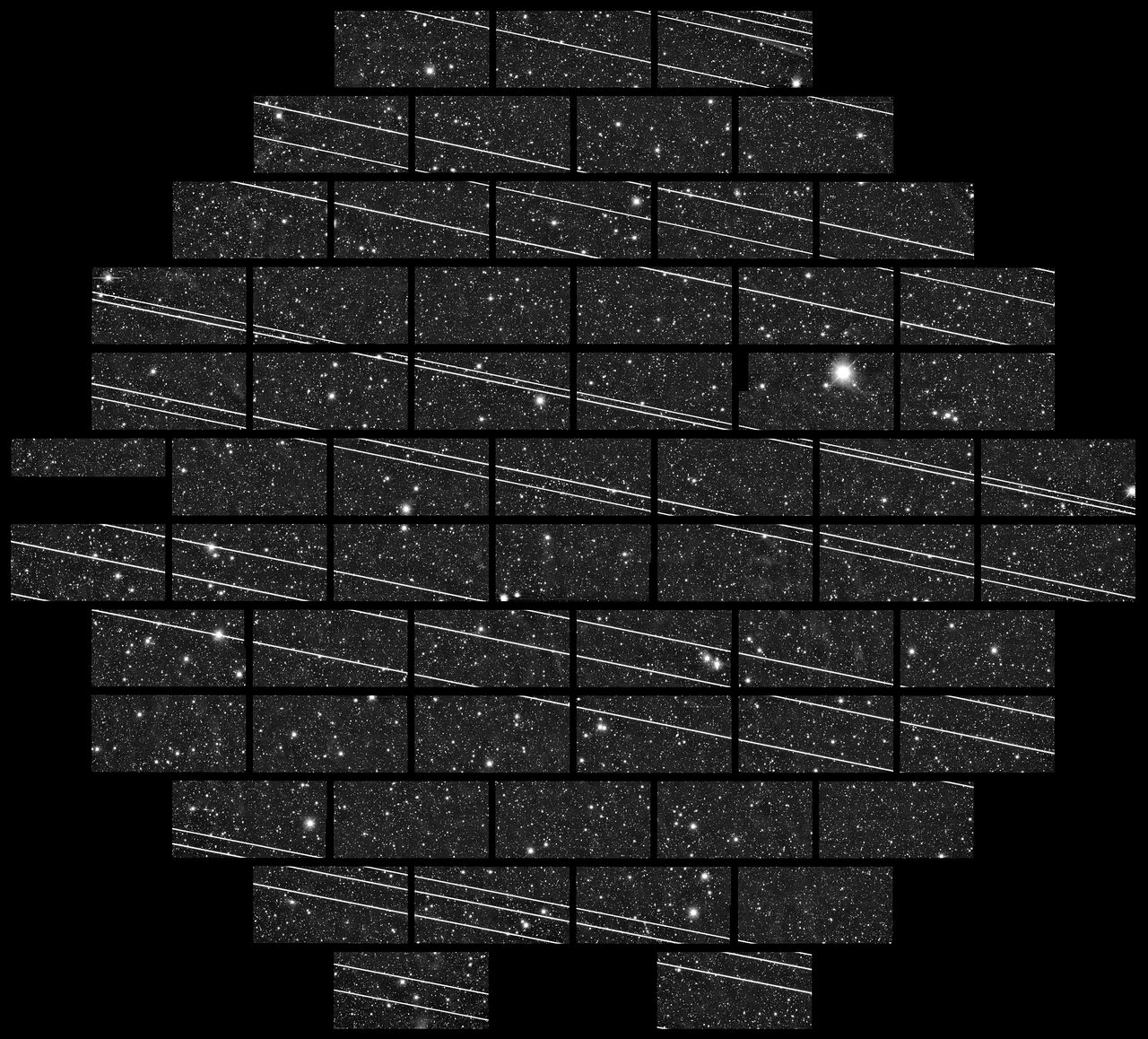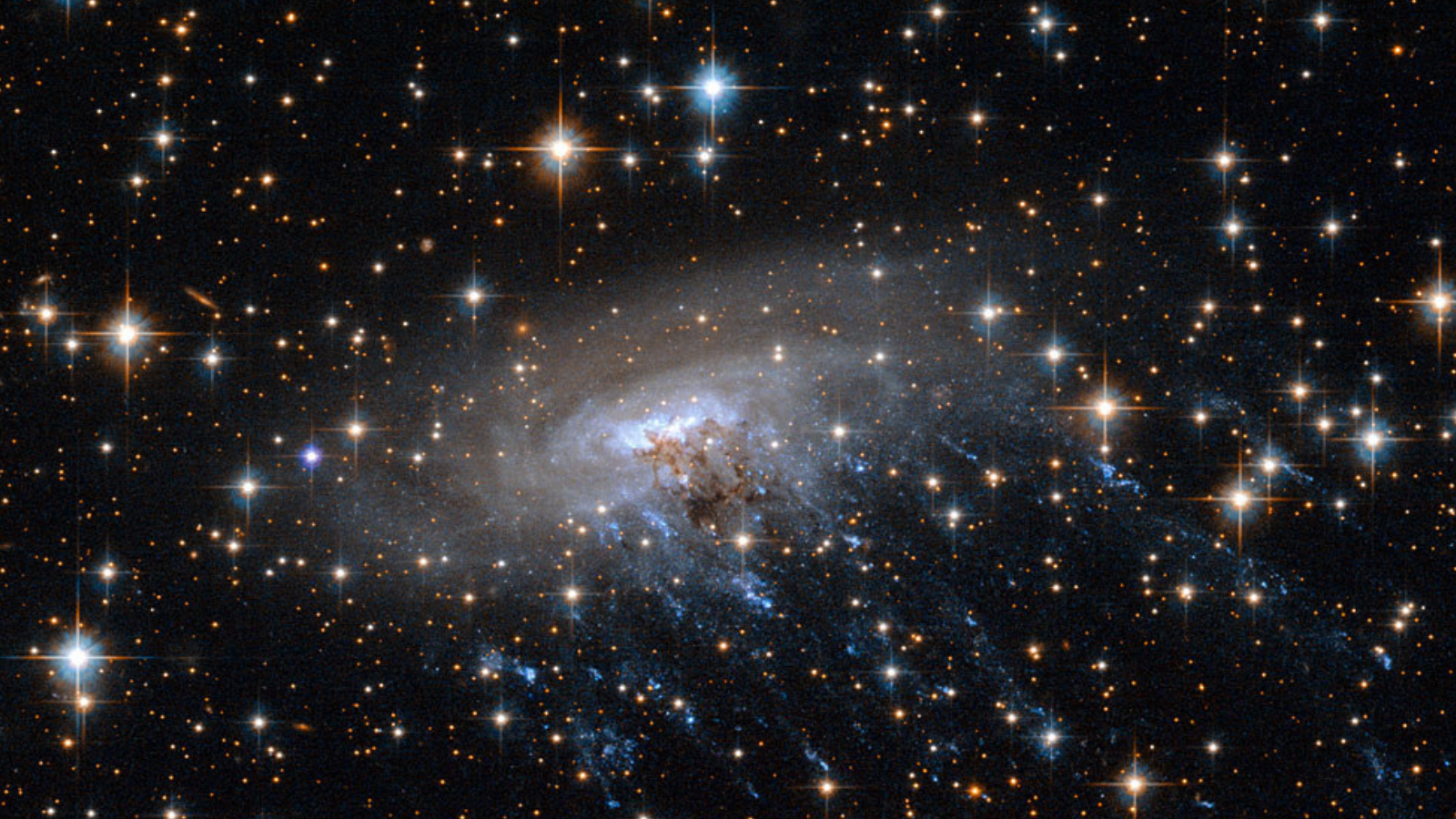Satellite megaconstellations prompt new warning from astronomy group about impact on science

Breaking space news, the latest updates on rocket launches, skywatching events and more!
You are now subscribed
Your newsletter sign-up was successful
Want to add more newsletters?

Delivered daily
Daily Newsletter
Breaking space news, the latest updates on rocket launches, skywatching events and more!

Once a month
Watch This Space
Sign up to our monthly entertainment newsletter to keep up with all our coverage of the latest sci-fi and space movies, tv shows, games and books.

Once a week
Night Sky This Week
Discover this week's must-see night sky events, moon phases, and stunning astrophotos. Sign up for our skywatching newsletter and explore the universe with us!

Twice a month
Strange New Words
Space.com's Sci-Fi Reader's Club. Read a sci-fi short story every month and join a virtual community of fellow science fiction fans!
The more astronomers consider the advent of satellite megaconstellations, the more anxious they get.
Now, the International Astronomical Union (IAU), a premier group of astronomers, has spoken out again, voicing scientists' concerns about how the satellites that make up OneWeb and SpaceX's Starlink will interfere with observations of the night sky. The statement accompanies the publication of a new page designed for the public about satellite constellations and optical astronomy.
"The IAU considers the consequences of satellite constellations worrisome," the organization said in the new statement. "They will have a negative impact on the progress of ground-based astronomy, radio, optical and infrared, and will require diverting human and financial resources from basic research to studying and implementing mitigating measures."
Related: SpaceX just launched a fleet of Starlink satellites. Here's how to spot them in the sky.
SpaceX's Starlink constellation has inspired particular consternation; at each launch of 60 satellites, astronomers have rediscovered how severely Starlink interferes with optical observations. The satellites naturally reflect a lot of light, resulting in bright lines running across the images produced by observatories. The outcry was particularly strong after the first Starlink launch, and the IAU released an initial statement about satellite constellations soon after, in June 2019.
In the new statement, the organization highlighted the urgency these concerns have gathered over the past year. "The IAU notes that currently there are no internationally agreed rules or guidelines on the brightness of orbiting manmade objects," the statement read. "While until now this was not considered a priority topic, it is now becoming increasingly relevant."
The IAU also asked two subgroups to evaluate the ways this sort of massive network of satellites could affect astronomers and to reach out to the companies launching such satellites. The new statement focuses on the first of those tasks, and the results offer a more detailed look at what astronomers can expect from these megaconstellations. The astronomers found that many of the satellites would pass low over the horizon, and those passing higher overhead would likely be too faint to observe by eye.
Breaking space news, the latest updates on rocket launches, skywatching events and more!
The findings also note that because the satellites are most obtrusive right after they launch, the impact on astronomy will depend based on how frequently new satellites are launched: The same number of satellites grouped into fewer launches will interfere less with astronomers' observations.
The IAU statement also highlighted particular concerns that the constellations would interfere with observing programs that watch large swaths of the sky at a time. That's because the satellites could easily overexcite the detectors on the large telescopes that conduct this sort of observing. Certain telescopes could lose up to 30% of their twilight observations, the IAU found.
And the organization isn't going to let the night skies brighten without a fight. The new statement ended with a condemnation of interfering with astronomical observations: "The IAU stresses that technological progress is only made possible by parallel advances in scientific knowledge. Satellites would neither operate nor properly communicate without essential contributions from astronomy and physics. It is in everybody’s interest to preserve and support the progress of fundamental science such as astronomy, celestial mechanics, orbital dynamics and relativity."
- In photos: SpaceX launches third batch of 60 Starlink satellites to orbit
- Wow! This is what SpaceX's Starlink satellites look like in the night sky
- How to see SpaceX's Starlink satellite 'train' in the night sky
Email Meghan Bartels at mbartels@space.com or follow her @meghanbartels. Follow us on Twitter @Spacedotcom and on Facebook.
OFFER: Save at least 56% with our latest magazine deal!
All About Space magazine takes you on an awe-inspiring journey through our solar system and beyond, from the amazing technology and spacecraft that enables humanity to venture into orbit, to the complexities of space science.

Meghan is a senior writer at Space.com and has more than five years' experience as a science journalist based in New York City. She joined Space.com in July 2018, with previous writing published in outlets including Newsweek and Audubon. Meghan earned an MA in science journalism from New York University and a BA in classics from Georgetown University, and in her free time she enjoys reading and visiting museums. Follow her on Twitter at @meghanbartels.

